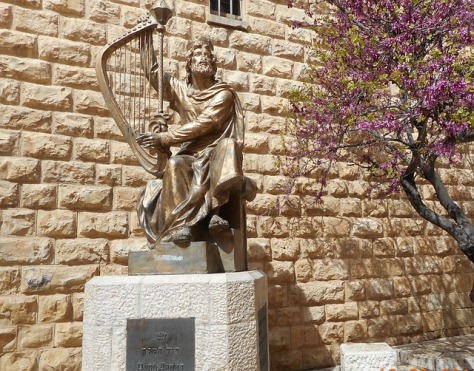
The first effect of his sorrow was to close his lips in a silence that was not altogether submission. "I held my peace, even from good, and my sorrow was stirred." As in his sin, when he kept silence, his "bones waxed old," so now in his sorrow and sickness the pain that could not find expression raged the more violently. The tearless eyes were hot and aching; but he conquered the dumb spirit, and could carry his heavy thoughts to God. They are very heavy at first. He only desires that the sad truth may be driven deeper into his soul. With the engrossment so characteristic of melancholy, he asks, what might have been thought the thing he needed least, "Make me to know mine end;" and then he dilates on the gloomy reflections which he had been cherishing in silence. Not only he himself, with his handbreadth of days, that shrink into absolute nothingness when brought into contrast with the life of God, but "every man," even when apparently "standing" most "firm, is only a breath." As a shadow every man moves spectral among shadows. The tumult that fills their lives is madness; "only for a breath are they disquieted." So bitterly, with an anticipation of the sad, clear-eyed pity and scorn of "The Preacher," does the sick and wearied king speak, in tones very unlike the joyous music of his earlier utterances.
But, true and wholesome as such thoughts are, they are not all the truth. So the prayer changes in tone, even while its substance is the same. He rises from the shows of earth to his true home, driven thither by their hollowness. "My hope is in Thee." The conviction of earth's vanity is all different when it has "tossed him to Thy breast." The pardoned sinner, who never thereafter forgot his grievous fall, asks for deliverance "from all his transgressions." The sullen silence has changed into full acquiescence: "I opened not my mouth, because Thou didst it,"—a silence differing from the other as the calm after the storm, when all the winds sleep and the sun shines out on a freshened world, differs from the boding stillness while the slow thunder-clouds grow lurid on the horizon. He cries for healing, for he knows his sickness to be the buffet and assault of God's hand; and its bitterness is assuaged, even while its force continues, by the conviction that it is God's fatherly chastisement for sin which gnaws away his manly vigour as the moth frets his kingly robe. The very thought which had been so bitter—that every man is vanity—reappears in a new connection as the basis of the prayer that God would hear, and is modified so as to become infinitely blessed and hopeful. "I am a stranger with Thee, and a sojourner, as all my fathers were." A wanderer indeed, and a transient guest on earth; but what of that, if he be God's guest? All that is sorrowful is drawn off from the thought when we realise our connection with God. We are in God's house; the host, not the guest, is responsible for the housekeeping. We need not feel life lonely if He be with us, nor its shortness sad. It is not a shadow, a dream, a breath, if it be rooted in Him. And thus the sick man has conquered his gloomy thoughts, even though he sees little before him but the end; and he is not cast down even though his desires are all summed up in one for a little respite and healing, ere the brief trouble of earth be done with: "O spare me, that I may recover strength before I go hence, and be no more."
It may be observed that this supposition of a protracted illness, which is based upon these psalms, throws light upon the singular passiveness of David during the maturing of Absalom's conspiracy, and may naturally be supposed to have favoured his schemes, an essential part of which was to ingratiate himself with suitors who came to the king for judgment by affecting great regret that no man was deputed of the king to hear them. The accumulation of untried causes, and the apparent disorganization of the judicial machinery, are well accounted for by David's sickness.
The fifty-fifth psalm gives some very pathetic additional particulars. It is in three parts—a plaintive prayer and portraiture of the psalmist's mental distress (vers. 1-8); a vehement supplication against his foes, and indignant recounting of their treachery (vers. 9-16); and, finally, a prophecy of the retribution that is to fall upon them (vers. 17-23). In the first and second portions we have some points which help to complete our picture of the man. For instance, his heart "writhes" within him, the "terrors of death" are on him, "fear and trembling" are come on him, and "horror" has covered him. All this points, like subsequent verses, to his knowledge of the conspiracy before it came to a head. The state of the city, which is practically in the hands of Absalom and his tools, is described with bold imagery.
